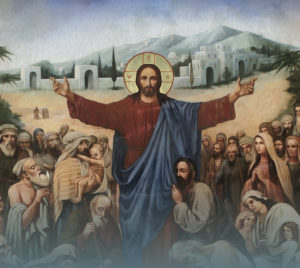The books of the Bible each have their own innate beauty because each is the inspired word of God, but that is not to say that the individual reader may not have different preferences for one book over the other. This is usually the case with the four Gospels. For me, my favorite is the Gospel of Luke because it gives us one of the two infancy narratives (Matthew does also), it is full of parables and stories (as in Matthew also), and the Passion narrative is one where Jesus continues to minster throughout his own suffering as he makes his way to Calvary (rather different from Matthew). The Book of Job is another standout for me among the Scriptures.
 We do not know who wrote the Book of Job, but it was likely written between the 7th and 5th centuries BC. The book centers on numerous tragic events that happen to Job, who himself is a good and holy man, and these events are the source of great suffering for him. The book contains varying discourses from Job, his neighbors, and finally from God. In the first reading for this Fifth Sunday in Ordinary Time, we hear of Job’s frustration, sorrow, and even anger at the events that have happened to him and the direction that his life has taken. Towards the end of the book, God speaks to Job in a wonderful, vivid discourse, reminding Job, and us, that God’s ways are far beyond us. At the end of the book, God makes all things right for Job, yet there is one thing in reading the Book of Job that you will find lacking: an answer to the question of why do bad things happen to good people.
We do not know who wrote the Book of Job, but it was likely written between the 7th and 5th centuries BC. The book centers on numerous tragic events that happen to Job, who himself is a good and holy man, and these events are the source of great suffering for him. The book contains varying discourses from Job, his neighbors, and finally from God. In the first reading for this Fifth Sunday in Ordinary Time, we hear of Job’s frustration, sorrow, and even anger at the events that have happened to him and the direction that his life has taken. Towards the end of the book, God speaks to Job in a wonderful, vivid discourse, reminding Job, and us, that God’s ways are far beyond us. At the end of the book, God makes all things right for Job, yet there is one thing in reading the Book of Job that you will find lacking: an answer to the question of why do bad things happen to good people.
This question is as old as time and if I had an answer for you I would be selling books and appearing on talk shows. We can delve into philosophy and theology to address this question and we can come up with some answers but they will not be definitive and many will not find them satisfactory. Fully grasping the problem of evil, especially concerning the innocent, is something that none of us will be able to fully this side of heaven. While we may not be able to answer the question, that does not mean that there is nothing to do in the face of suffering and evil.
This Sunday finds us continuing in the first chapter of Mark’s Gospel. Jesus is preaching and healing, the crowds are coming to him, and in the midst of it all he attempts to briefly get away. Our translation says that his disciples “pursued him” but the actual Greek is closer to “hunted him down.” The crowds were eager, desperate to get to Jesus because they recognized in him the ability to make things better: to cure, to forgive, to heal, and to console. Jesus leaves his solitude and goes back into the fray of the crowds who have been searching for him. The crowds knew that Jesus could make a difference. Do we believe the same when faced with suffering in our own lives?
When faced with suffering, we want it gone, we want nothing to do with it; that is a natural reaction. In dealing with suffering, when deciding where we turn to or where we go, is God one of those options, or, rather, shouldn’t God be our automatic “go to?” Jesus tells his disciples in this Sunday’s Gospel that preaching the Kingdom is why he has come and so he sets off. The coming of the Kingdom is about our liberation from the power of sin and the cares of the world. With this proclamation, the Lord also God’s desire for our good through his healing actions and his generous compassion.
The good news for us is that whenever we turn to God in the face of suffering, he is already turning towards us. God does not will our suffering and while God will not always address our suffering in the way we might want him to, he will always be present in it as he was to Job and as Jesus was to the crowds. The Psalmist this weekend reminds us that God “heals the brokenhearted and binds up their wounds.” You may not have an answer for why bad things happen in life, but in the midst of sorrow, pain, and loss, God will draw near to you, to love you and to console you. In the end, on the other side of heaven, he will make everything right as he did for Job. In the meantime, make sure that you are always seeking to draw near to him, whether in joy or in sorrow.
Father Christopher House is the Rector-Pastor of the Cathedral and serves in various leadership roles within the diocesan curia, specifically Chancellor and Vicar Judicial.